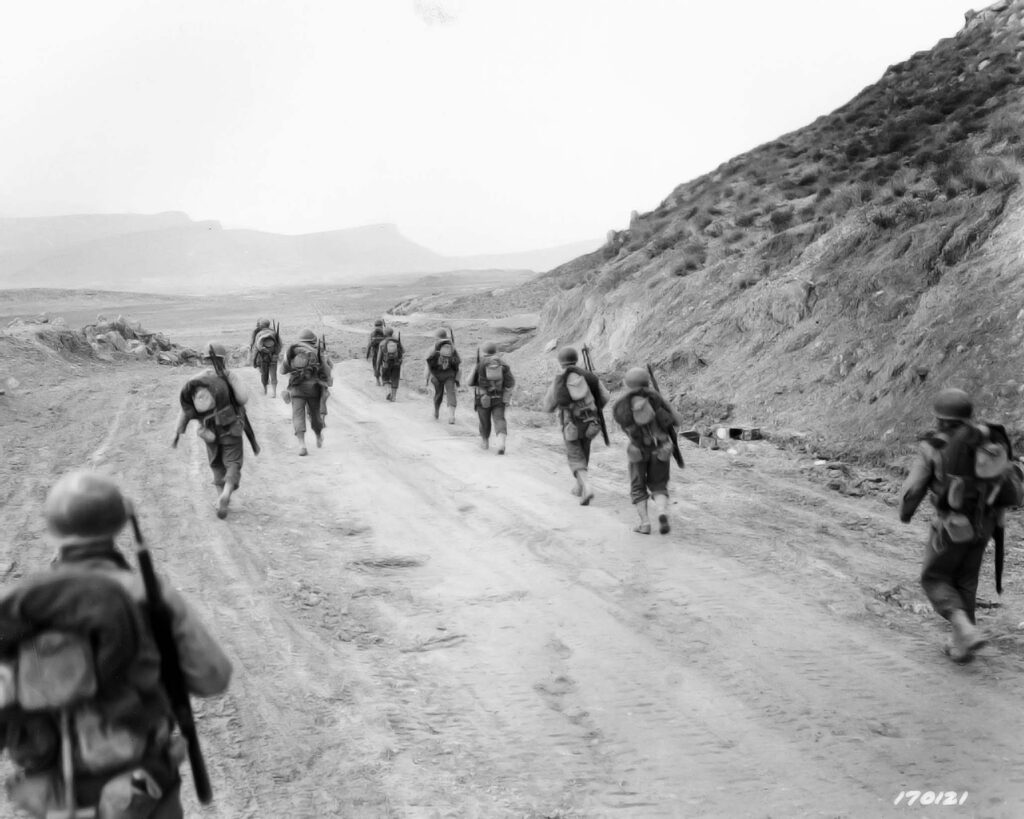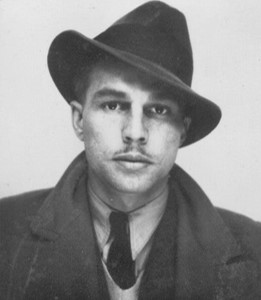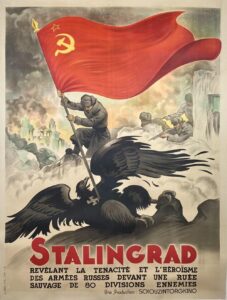In Africa, Thinking of Stalingrad: Lossowski Recalls the War Years
Vince Lossowski (1913-1984), who was born and raised in Rochester, New York, in a Polish working-class family, served with the International Brigades from August 1937 until September 1938. In 1942, he was recruited for the Office of Strategic Services (OSS), along with half a dozen of his fellow Lincoln Brigade vets. During World War Two, Vince served behind enemy lines in North Africa and Italy under the direction of General William Donovan. He left the Army at the rank of Captain in 1945 and was presented with the Legion of Merit. Later in life, he wrote this brief memoir, which the Lossowski family has generously shared with us.
I have only to close my eyes to hear the screech of the dive-bombing Stukas seeking us out amongst the cactus plants, where we had taken refuge after falling back on the North African Tunisian front. The acrid smell of bursting bombs filled our nostrils, while cactus shredded by shrapnel rained down on us as we burrowed ever deeper with each bomb burst.
This was a few kilometers back from Kasserine Pass in the Tunisian mountains of Tebessa, where Rommel’s famed Afrika Korps Armor had broken through. Rommel’s troops immediately spilled out below in the Kasserine Plain, cutting our lines of communications and supply. As an American soldier, I was part of a special reconnaissance and operational group attached to the British army, operating in Tunisia in the months of December and January 1943. It was our task to infiltrate the immediate enemy line and destroy rail communications and bridges to hamper his movement.
What I didn’t realize at the time was that the breakthrough at Kasserine by the Nazis was a desperate drive on their part, motivated by the increasingly dwindling supplies to smash our advance with one hard blow. Instead of blowing up Nazi supply dumps, I had to help blow up one of our huge fuel dumps comprising thousands of drums of gasoline, in order to keep them from falling into the hands of Rommel’s troops.
The successful counterattack by a joint British and American operation that followed was due in no small measure, as I subsequently learned, to the valiant Russian soldiers counterattacking the Nazis in the frozen nightmare of Stalingrad. With thousands of Nazis breaking their heads against the granite will of the defenders of Stalingrad and using more and more supplies in their futile attempt, supplies that were destined for other fronts were diverted to Stalingrad to bolster their crumbling position. The much-vaunted Desert Afrika Korps of Rommel’s felt the pinch of much-needed replacement and therefore couldn’t exploit breakthrough at Kasserine. The Nazis, in retreating, had to resort to requisitioning horses and oxen to move their artillery and tanks. I saw numbers of their armor destroyed by their own crews when they ran out of fuel, because gasoline destined for North Africa was instead sent to Stalingrad.
After the defeat of the Nazi Army in the late Spring of 1943, I was awaiting reassignment for the invasion of Italy that was to come in September. While waiting, I happened to see a Russian film on the defense of Stalingrad. I shall never forget what I felt when the camera focused on two distant specks moving towards each other in the snow-covered steppes outside of the city. As the camera moved in closer, I could discern two Russian soldiers struggling through the deep snow. These two soldiers were the spearheads of the tremendous Russian pincher movement that locked the Nazi army in a vast pocket. As the camera zoomed in even closer and the two soldiers, with arms outstretched, finally embraced, a cry came out of my throat at that moment, and I felt as though I was part of that embrace. Although I never met them in the flesh, together in a common cause that led to the defeat of fascism, I felt honored to have been a part of that struggle.
That experience symbolized to me that people of goodwill all over the world can unite to defeat the forces of evil and work towards an everlasting peace.















